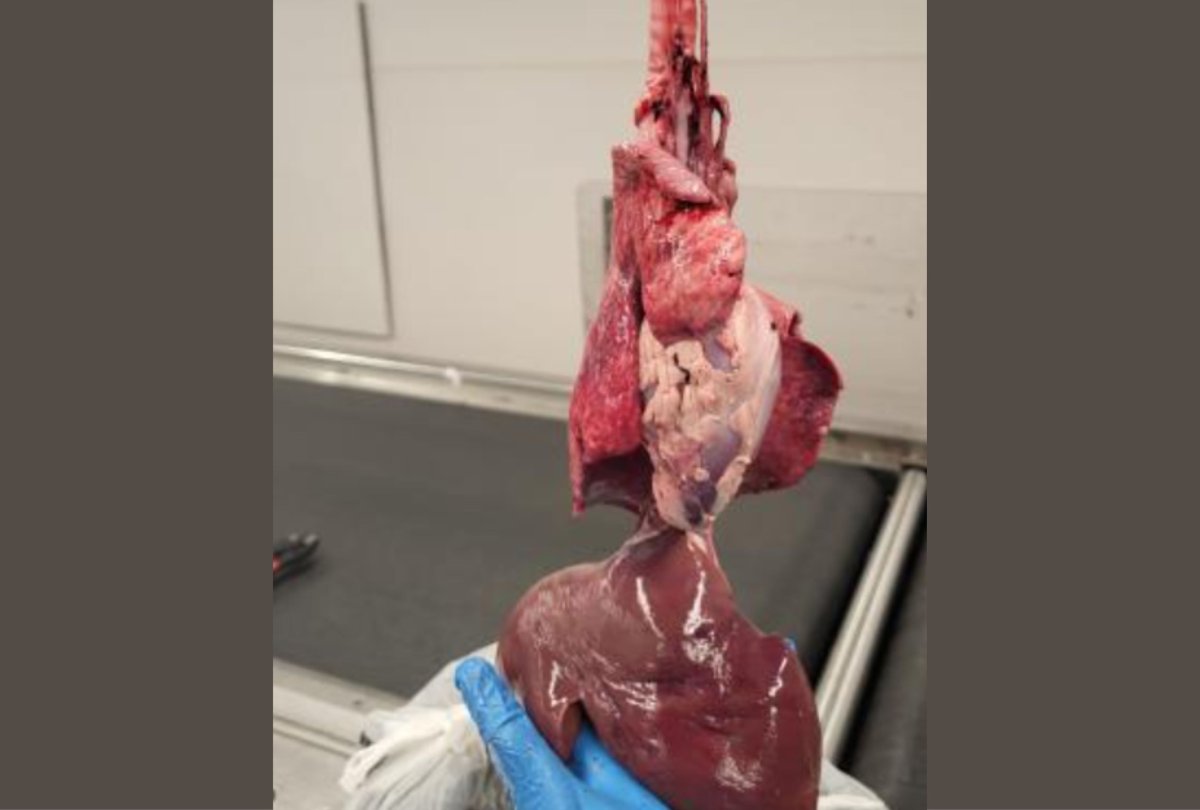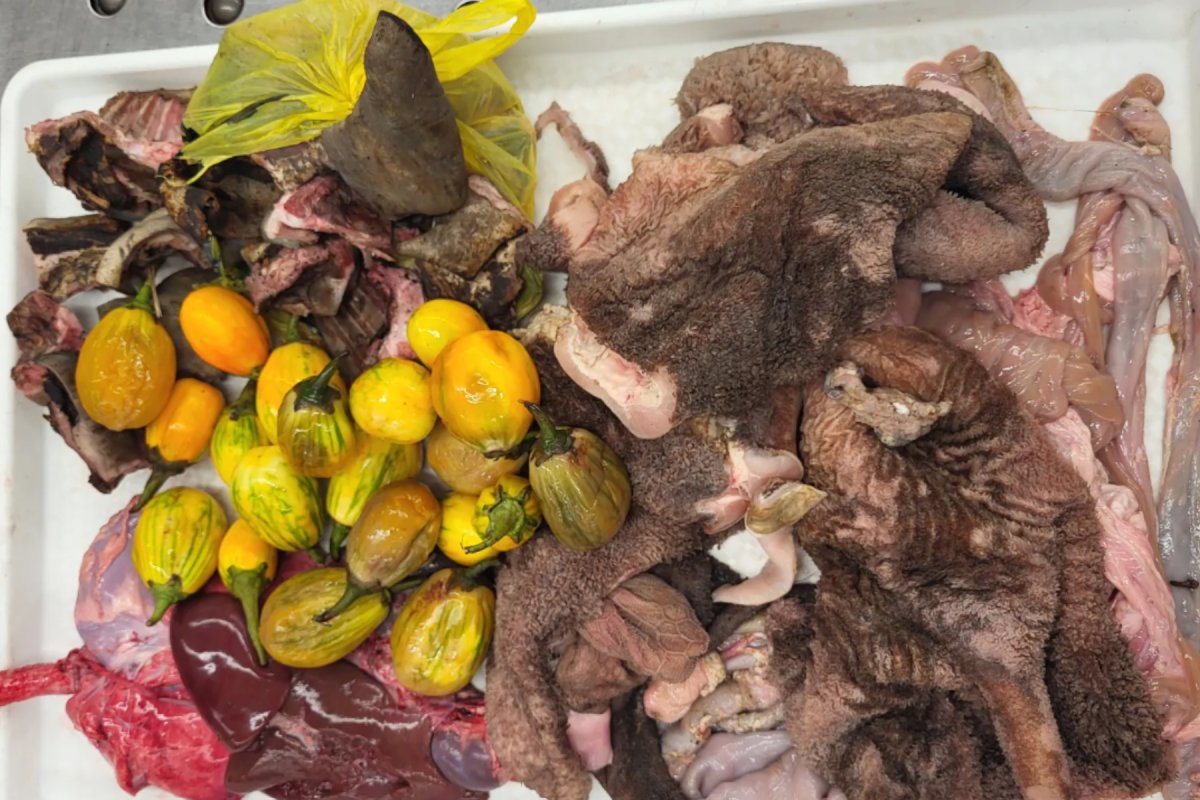Two people have been stopped by U.S. Customs and Border Protection (CBP) after bringing a gory and bizarre souvenir back in their luggage.
The pair, who were traveling back to Chicago O'Hare International Airport from the Democratic Republic of Congo on October 10, were found to have 15 pounds of raw goat viscera inside their suitcases, including the trachea, heart, lungs, liver, kidneys, and its entire digestive system. They also had one pound of an unknown meat, and two pounds of garden eggs, also known as African eggplants.
"There are real dangers these items can have if they are introduced in the U.S. economy," LaFonda D. Sutton-Burke, U.S. CBP director of field operations at the Chicago field office, said in a statement.
"All passengers, whether entering or returning to the U.S. must be truthful and declare all items they are bringing. If one prohibited item enters the U.S., it could have dangerous ecological or economical results."
Newsweek has contacted the CBP for further information. It is not yet known if the couple have been charged over the incident.
CBP agriculture specialists seized and destroyed the remains to prevent the transmission of disease.

Animal remains can contain pathogenic bacteria or viruses, which can be spread between countries if they are transported without proper care and control. Animals in the Democratic Republic of Congo have been previously infected by diseases such as ovine rinderpest and peste des petits ruminants, which kill goats and sheep, as well as monkeypox and even Ebola.
"Items like these can harbor pests and diseases; if introduced into our agriculture systems or natural resources, [they] could cause significant damage to our food supply or native species," said Michael Pfeiffer, area port director in Chicago, said in the CBP statement. "Our agriculture specialists are dedicated to protecting these essential American resources from foreign pests and diseases."
The incident comes only a few weeks after a woman flying from Kenya into Minneapolis-Saint Paul International Airport was found with giraffe feces in her luggage, which she planned on making into jewelry. This was also destroyed by the CBP to prevent the spread of disease.

Animal feces, especially giraffe feces, can contain bacteria like E.coli, shigella, or staphylococcus, as well as nematode parasites, which can cause diseases in humans and other animals.
"There are some coronaviruses that can be spread from infected feces and go on to infect cattle as well," David Verhoeven, an assistant professor of vet microbiology and preventive medicine at Iowa State University, told Newsweek.
"A significant virus could be foot and mouth disease virus (apthovirus) which could spread to cows, sheep and pigs and be very bad in the U.S. Giraffes can also carry rotaviruses that can get into cows."
Those wishing to import plant, animal or other agricultural materials into the U.S. must declare them to CBP officers to avoid civil or criminal penalties, the CBP urged in the statement.
Do you have a science story to share with Newsweek? Do you have a question about animal diseases? Let us know via science@newsweek.com.
Uncommon Knowledge
Newsweek is committed to challenging conventional wisdom and finding connections in the search for common ground.
Newsweek is committed to challenging conventional wisdom and finding connections in the search for common ground.
About the writer
Jess Thomson is a Newsweek Science Reporter based in London UK. Her focus is reporting on science, technology and healthcare. ... Read more
To read how Newsweek uses AI as a newsroom tool, Click here.






